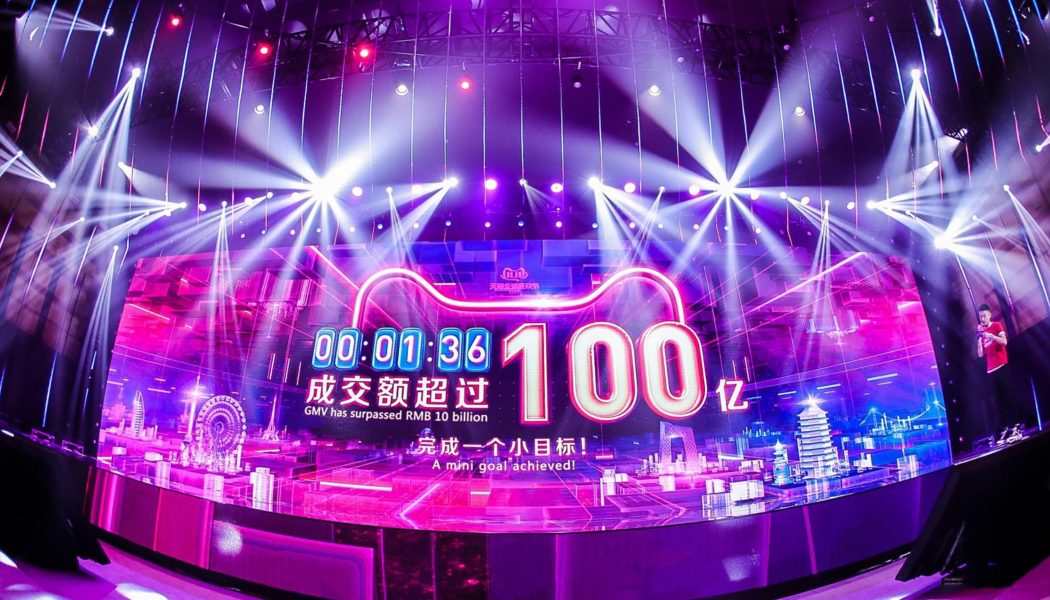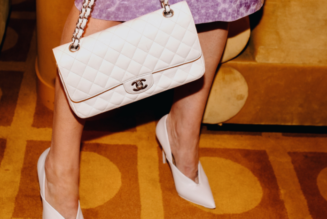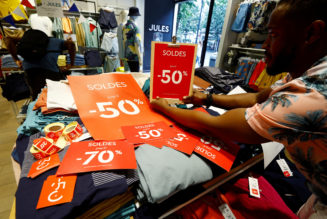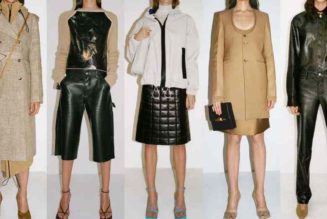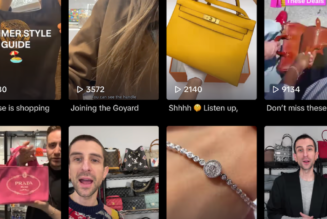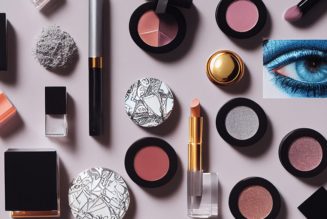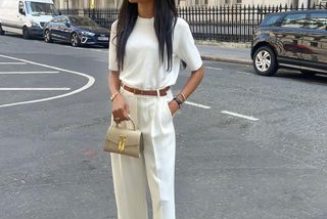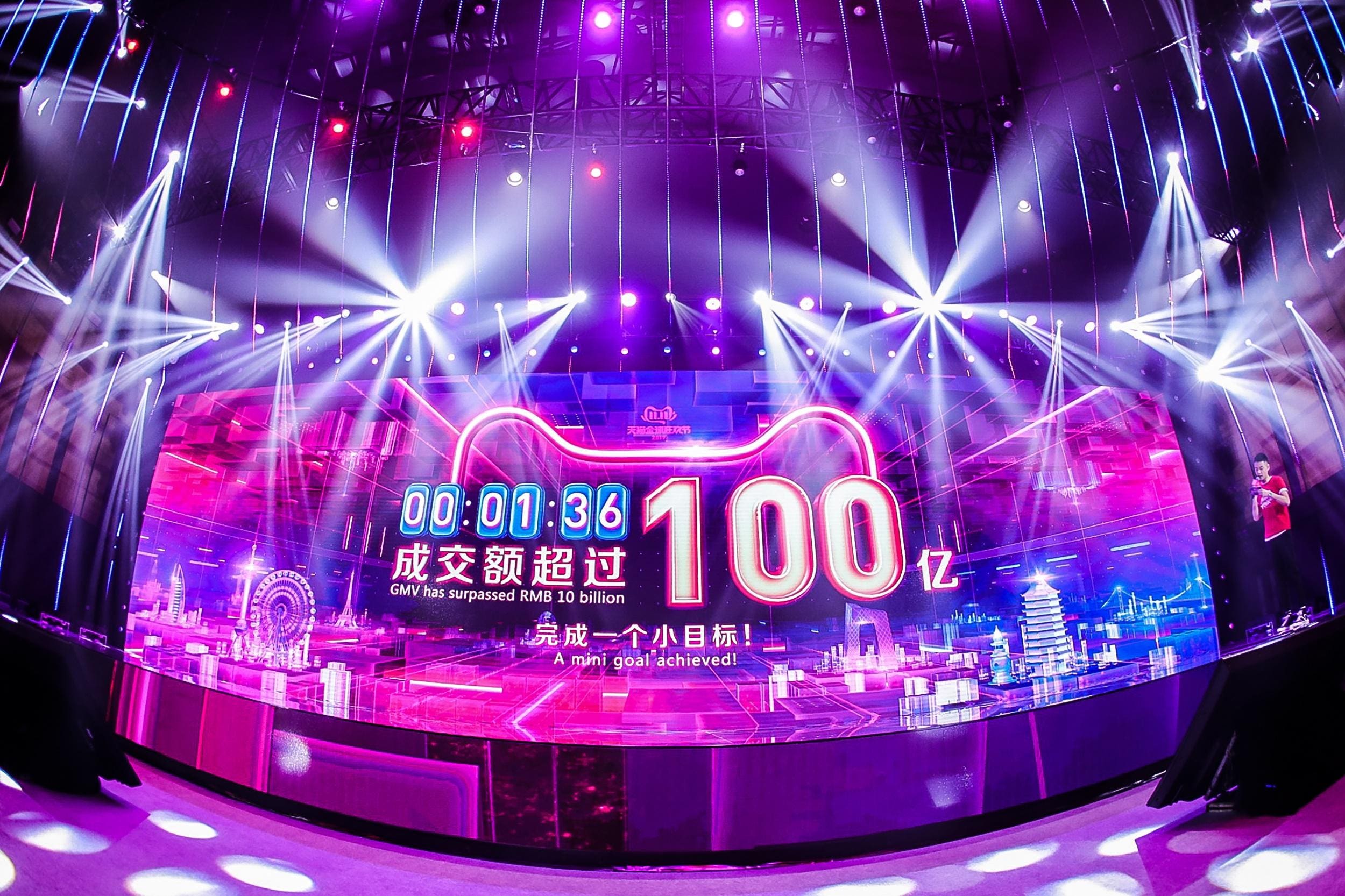
China’s juggernaut retail festival Singles’ Day, or “Double 11,” offers a snapshot of the country’s consumption landscape. This year’s is particularly prescient—and surprising. Despite dispiriting trends in the economy (from a housing crisis and deflation to a youth unemployment rate of 20% and falling birth rates), big tech platforms across the board saw sales growth. It speaks to the resilience and optimism of Chinese consumer sentiment.
The event ran from pre-sales on October 24 at 8 p.m. (China time) to midnight on November 11. Alibaba Group’s recently restructured China commerce business Taobao and Tmall withheld exact revenues but acknowledged that GMV, orders and merchants grew during this period. This year, 402 brands surpassed ¥100 million ($13.72 million) in GMV each, while 38,000 more than doubled their GMV year on year.
Luxury appeared eager to connect with consumers amid significant economic headwinds: 200 brands rushed to Tmall to release over 10,000 new products including limited-edition and China-exclusive items—despite the high discounting associated with the festival.
In an interview, Arnold Ma, CEO of digital agency Qumin, says that although this year’s Single’s Day has centered low prices and bargain buys, luxury brands don’t necessarily need to engage in price wars to make an impact.
“The new buzzword 精致穷 [jingzhi qiong meaning “exquisite poverty”] highlights that many young people are motivated to pursue ultra-low prices on essential items just so they can make room in their budgets for major luxury purchases,” he explains.
Singles’ Day is a hotline to such consumers, and brands have taken note. Gucci, Balenciaga and Max Mara enticed consumers with 24-month interest-free installment plans, as well as offering limited-edition gifts, large-value coupons and other benefits.
Gucci participated in Tmall’s Singles’ Day for the first time with exclusive products for Chinese … [+]
This is compounded by how—taking place entirely online—the event’s reach is not limited by geography. Speaking to Sophie Coulon, managing partner at the Shanghai-based digital consultancy VO
VO
Tmall found that this season Gen-Z consumers had a preference for jewelry, home furnishing and, due to a “marriage wave,” wedding products. Popular items included Gucci’s Double G enamel silver ring, Chopard’s small ice cube 18K gold ring and Jimmy Choo women’s classic wedding shoes. Indeed, such was the appetite for these categories that sales accounted for 70% of total purchases.
While Gen-Z accounted for many such bright spots, its knowledge of how to game the platform’s loopholes posed an issue. “Young consumers are manipulating the system,” Coulon explains, “by using reverse bundling tactics to exploit discounts on luxury goods from brands like Ralph Lauren, Versace, Burberry and even Dior.” The tactics are widely discussed on social media platforms like Xiaohongshu, and their prevalence has even disrupted business operations. To discourage the practice, Coulon recommends platforms “develop more sophisticated and nuanced discount strategies.”
In terms of a theme, the integration of AI and China-focused products were prominent trends. AI technology generated virtual floats for the likes of Ralph Lauren and MCM while the AI camera “Miaoya Camera” created consumer avatars through which participants could try on clothes. Tmall (and Taobao) launched 10 free AI-powered features for merchants as well as a generative AI chatbot named Wenwen to answer users’ queries.
Labels such as Burberry and Montblanc used the event to debut exclusive products for 2024’s Year of the Dragon. Vacheron Constantin pushed its Zodiac Dragon Year watch. Also on sale was the limited edition Baccarat Be@rbrick Dragon featuring clear crystal with golden accents.
It is no surprise then that domestic names—alongside trends of nation and tech—had a good year. C-beauty brand Proya secured the top spot in the skincare category beating L’Oreal, Lancome and Estee Lauder; still, over 80 percent of the top 20 were international. From October 31 to November 3, buzzy lifestyle label The Beast scoped both the Tmall Perfumes and Aromatherapy flagship store rankings both by GMV and purchasing numbers. And local fragrance line To Summer ranked second in the Tmall Perfumes and Aromatherapy flagship store ranking by GMV.
JD.com, Tmall’s main competitor by market share, was upbeat. It celebrated a “record-breaking” event with “transaction volume, order volume and user engagement reaching all-time highs.” The former for Dior, Tiffany and Bottega Veneta products quadrupled year on year while Valentino’s increased over sixfold on the platform during the event. Louis Vuitton, Gucci and Dior saw their transaction volumes more than triple within the first 30 minutes compared to the previous year’s figures. Those of gold and watches increased over 130% year on year, with transaction volume of both men’s and women’s down jackets up more than 100% year on year. Lululemon’s transaction volume expanded by 260% year on year.
Ralph Lauren is winning over Chinese consumers due to its old money style connotations.
While Tmall and JD.com accounted for the majority of sales during the event, orders across other social commerce channels platforms were up significantly: 20% on Pinduoduo, 50% on Kuaishou—and Douyin saw a jump of 119%. Xiaohongshu was a big winner too. The company said it experienced a 380% year-on-year increase in GMV, accompanied by a remarkable 420% surge in livestreaming sales. Effie Chen, business development lead at brand incubator Yaso, points out in a correspondence that Xiaohongshu has “incubated its live streamers to emphasize brand value,” leading to “high average order values without a heavy reliance on discounts.”
“Xiaohongshu’s buyer-centric approach” has made waves, agrees Ma. He points to actors-turned-livestreamers Teresa Cheung Siu-wai and Dong Jie, who each made sales of over ¥100 million. “It’s not like this is comparable to Alibaba or JD.com, but it does point to a new way of growth and diversification for Double 11.”
Given all this, it might seem strange that, as Coulon notes, there has been talk of careful, rational consumption and “a lower intention to purchase luxury goods.” The event’s staggering figures tell a different story. This is a country where citizens are willing to purchase high-priced items. Just not overpriced ones.
